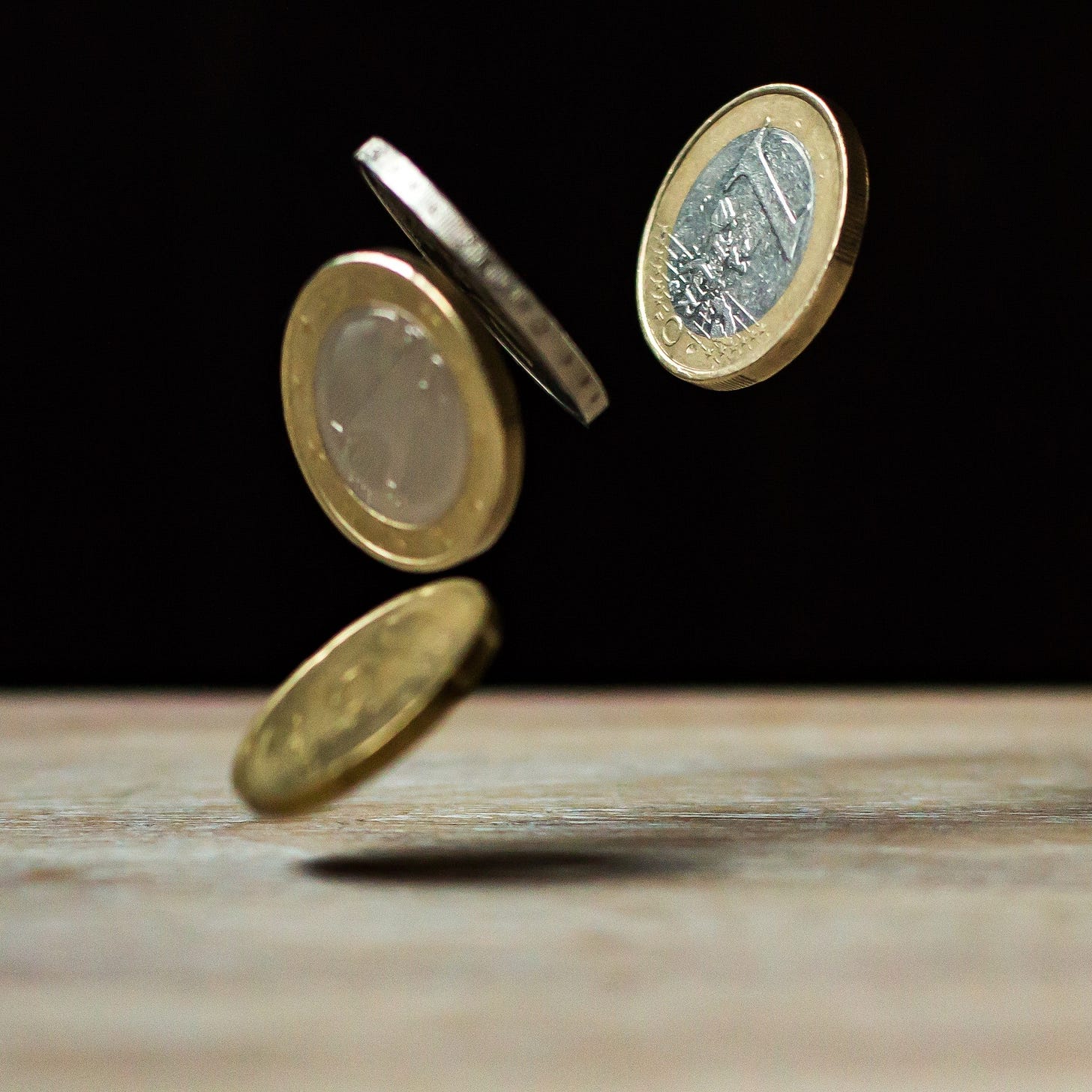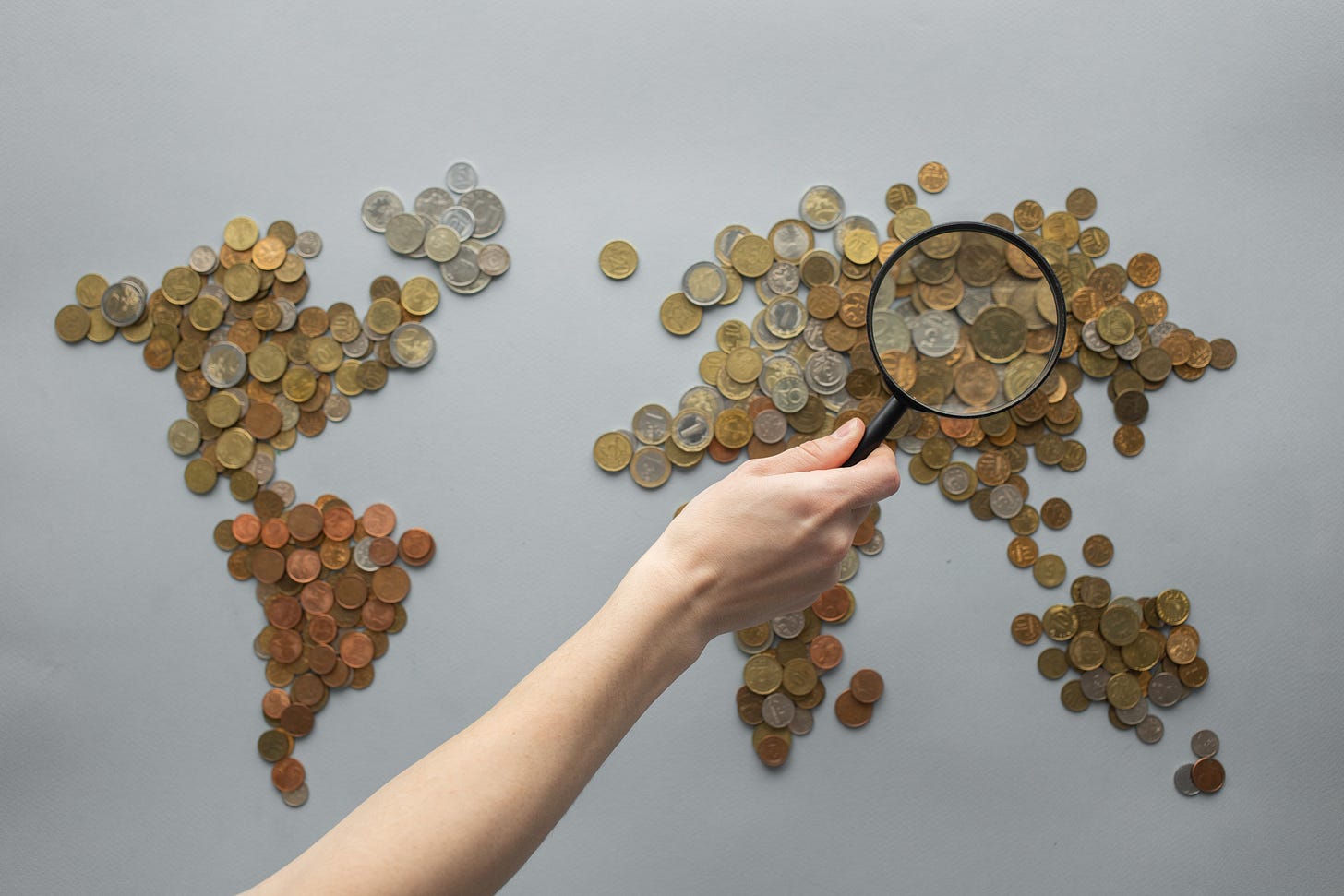It's no secret that the economy is in a state. Inflation is through the roof, and even at the 2-4% rate a year prior to the COVID money printer frenzy, it was unsustainable. Everyone paying attention outside of the Government or Bank of England seemed to know that. But now at nearly 10% a year (probably more than that in real terms) it's a complete joke. Are people really going to be ok with their £'s being worth around half they are today in just 5 years time? Even when the current rate eases off a bit, it will still be far higher than the previous unsustainable rate.
What is the problem?
The current setup of the economy is completely dependent on growth. That means that year on year national real GDP must exceed the previous year. The word MUST is used here because any hint of recession (two consecutive quarters of declining GDP) or stagnation raises questions regarding the security of unfathomable amounts of government debt, which is underpinning the value of the actual national currency.
Yes you read that right, the value of currency is based on debt, specifically money borrowed against the “idea” that the nation is productive enough, and the economy large enough that it will forever be able to sell its products and services. If that image or idea fades the currency will hyper-inflate, since the only use for the Great British Pound is to buy things in GBP from Britain.
The currency is no longer backed by any commodity, such as gold, instead it is backed by the assumption of productivity… forever.
Any currency that is created to add to the system, is created by loan, making more debt. If you pay this debt back, currency leaves the system and economic momentum takes a hit, which calls into question the economic growth prospects of the nation. Therefore more debt must be created year on year, to keep economic momentum up and GDP up. What this means is that because the country is in so much debt, they MUST keep extracting wealth from YOU. If the currency deflates the tables turn and you are extracting wealth from the government because their debt is set in an amount of GBP regardless of its current value.
This is also why taxes are so high and spread so widely over everything you can think of, because it is a mandated “use” (if you can call it that) of the currency. People have to use the national currency to pay their taxes, therefore it helps retain momentum, value and utility.
In international trade, international trade credits are created with (you guessed it) a debt incursion. Smaller economies that don’t have a central bank don’t get offered the same credit deals, therefore they have to buy things by incurring foreign debt which is much harder for them to repay, since they don’t have a money printing bank. Everything is a 100% credit to debt relationship, which works in favor of whoever has money printers, because they can create more debt at the expense of their citizens children’s futures, to pay back any international trade credit.
This all means a great many things for the average person:
The value of your savings decreases greatly over time.
The cost of goods will keep rising.
More and more of the economy will be based on private loans.
Taxes will only ever increase.
Public sector growth and spending will only ever increase into a larger and larger portion of the economy.
More and more jobs will be created for bureaucratic non-productive public servants or similar private positions.
Real assets such as real estate, commodities and Bitcoin (also potentially other crypto-based assets with sound economics), will continue to appreciate over time even if they crash in the short term.
Deflation will never be allowed to happen but inflation can rise indefinitely.
The cost of any useful/desirable product or service which cannot be easily scaled up via technology will grow over time.
You are being socially conditioned to accept a world where debt is normal, wide spread and even desirable. This will lead to short term money considerations superseding responsible behavior with money.
Eventually hyper-inflation is inevitable.
Your children will have less opportunities than you to be financially free or secure.
So what is the Alternative?
Can we go back to the gold standard?
Not really, the global economy is now too fluid, intertwined and expansive for a 1:1 gold to currency ratio like it was in the past. But the idea behind the gold standard is where we find the root of our monetary philosophy.
What is Money?
Money is an abstract idea used to identify the trade value of a good/service, it is a subcategory of the metaphysical idea of Value which can be understood as the subjective importance rating to an individual of anything from friends to abstract principles. How much monetary value you place on a good or service should be completely subjective to your environment and circumstance. Water in a drought for example is more valuable than water in a rainy season, and whether you have the means to store and transport it will also affect your decision as to its value.
What represents this Monetary Value in the real world?
In pre-currency times, that would be your assets. These could be material assets such as camels or intangible assets such as favor and influence. But the problem arises when your trade partner has something you need, and you don’t have anything they currently need or desire.
Now you require an agreed upon standard of monetary value, and a currency to represent it. This monetary standard will effectively work as an IOU for something of equal value to what you sold. Since it is a standard that the society agrees everyone will be willing to accept these IOUs.
In earlier times the currency and the standard would be almost one-in the same. A gold coin (currency) will be worth exactly the amount of gold used to make the coin (standard). But as the wealth accumulates in large quantities, and the people using the currency multiply, it becomes simpler to create IOUs backed by the standard, such as a bank note.
So now the Standard is an IOU for abstract monetary value, and the currency is an IOU for the Standard. This allows for ease of transfer, and allows the principle holders of the standard to manipulate the currency, for example inflation and/or deflation, and allows them to invest the monetary standard to grow it while you still hold the currency as a debt against them.
Definitions In summary
Money:
An abstract subjective value placed on tradable assets.
Monetary standard:
An objective standard agreed upon within a society, that represents an IOU for the value of traded assets
Currency:
An easily transferred IOU claim to a portion of the monetary standard, that can be engineered by the principle holder(s) of the standard to make trade and transfers of Money more versatile
As you can see here, Monetary Value does not come from the standard or the currency. They may add a small amount of value just by being convenient to use as opposed to having to directly trade assets for assets, but that is circumstantial and not by design.
Often the argument for Gold against Bitcoin is made by appealing to gold's tangible existence and utility. But neither of those things are what made the gold standard valuable or made gold a good candidate for the standard. Monetary Value is not linked to material, all Value is metaphysical. We just need to agree on a way to negotiate our perception of value with everyone else.
What makes a good standard?
It should be easily standardized. I know this seems obvious but camels make a bad standard, because they come in different sizes and types. Gold does not, an ounce of gold is the same anywhere, where one camel is not.
It should be non-perishable, gold effectively lasts forever. Camels do not.
It should be scarce, if it is hard to come by it cannot be inflated without great effort. Gold is scarce, camels are not.
It should be ultimately deflationary. This one is controversial, but is important for the same reason as scarcity, an ever inflating standard is ultimately unsustainable. A deflationary standard means there's a finite amount of it. Gold is deflationary, camels are not.
All of the characteristics that make a good standard, also make a good currency. Except being deflationary. A currency should be more versatile in its function, and inflation should be an option. And the one additional characteristic a currency requires is; ease of transfer.
As you can probably tell I believe that this alternative, common sense monetary philosophy is far more understandable and sane then our current situation.
In the next part of this document we will discuss the Petrodollar and alternative solutions.
To be continued….


